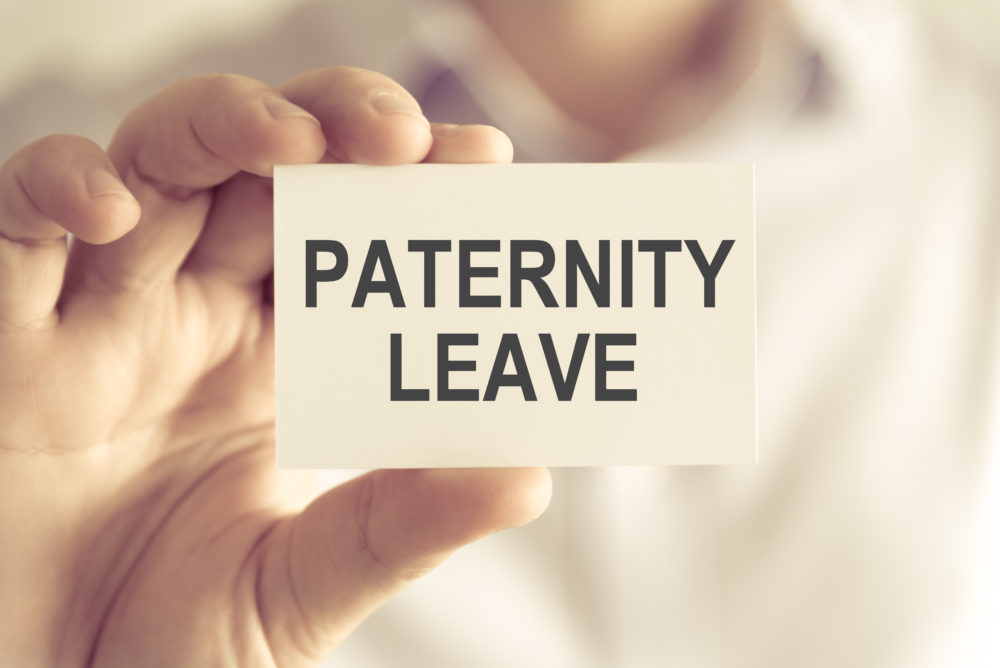Paternity leave for men is a crucial topic that has garnered increasing attention in recent years. As societal norms evolve, the role of fathers in childcare and family support has also transformed. Paternity leave not only benefits fathers but also plays a significant role in the child’s development and the overall family dynamic. In this article, we will explore what paternity leave entails, its benefits, and how it can positively impact families and workplaces.
This comprehensive guide will delve into the specifics of paternity leave policies, the benefits for both fathers and families, and the broader implications for workplaces and society as a whole. By the end of this article, readers will have a thorough understanding of paternity leave for men and its significance in the modern family structure.
Table of Contents
- What is Paternity Leave?
- The Importance of Paternity Leave
- Benefits of Paternity Leave for Fathers
- Benefits for Families
- Workplace Implications of Paternity Leave
- Paternity Leave Policies Around the World
- Overcoming Challenges Related to Paternity Leave
- The Future of Paternity Leave
What is Paternity Leave?
Paternity leave refers to the time off from work that a father is entitled to take following the birth or adoption of a child. This leave allows fathers to bond with their newborns, support their partners, and adjust to the new family dynamic. The duration and pay structure for paternity leave can vary significantly depending on the country and workplace policies.
Types of Paternity Leave
- Statutory Paternity Leave: This is the minimum leave provided by law, varying by country.
- Company-Specific Policies: Many companies offer enhanced paternity leave benefits beyond the statutory requirements.
- Unpaid Leave: Some fathers may choose to take additional unpaid leave if they require more time.
The Importance of Paternity Leave
Paternity leave is vital for several reasons. It acknowledges the active role fathers play in parenting and promotes gender equality in caregiving responsibilities. By allowing fathers to take time off, paternity leave helps to dismantle traditional gender roles that often leave childcare responsibilities predominantly to mothers.
Impact on Child Development
Research shows that when fathers take paternity leave, it positively affects child development. Children benefit from the emotional support and bonding time they receive from their fathers during the early stages of life. This bonding can lead to improved cognitive and social development.
Benefits of Paternity Leave for Fathers
Paternity leave offers numerous advantages for fathers, including:
- Bonding Time: Fathers can establish a strong emotional connection with their newborns.
- Support for Partners: Taking leave allows fathers to provide essential support to their partners during a critical transition.
- Reduced Stress: Being present during the early days can alleviate stress for both parents.
Benefits for Families
The advantages of paternity leave extend beyond just fathers; families as a whole can reap the rewards:
- Enhanced Family Dynamics: Shared responsibilities promote teamwork and cooperation within the family.
- Improved Mental Health: Fathers who take paternity leave often report lower levels of anxiety and depression.
- Better Work-Life Balance: Families can enjoy a more balanced approach to work and home life.
Workplace Implications of Paternity Leave
Employers stand to gain from offering paternity leave as well:
- Increased Employee Satisfaction: Companies that provide paternity leave often see higher employee morale and loyalty.
- Attracting Talent: Comprehensive leave policies can help businesses attract top talent.
- Reduced Turnover: Employees are less likely to leave for companies with better family leave policies.
Paternity Leave Policies Around the World
Paternity leave policies vary significantly across countries. Here are some examples:
| Country | Duration of Paternity Leave | Paid/Unpaid |
|---|---|---|
| Sweden | 480 days (shared with parental leave) | Paid |
| United States | 12 weeks (unpaid under FMLA) | Unpaid |
| Japan | 1 year (can be shared) | Paid |
| Canada | Up to 40 weeks (shared) | Paid |
Overcoming Challenges Related to Paternity Leave
Despite the benefits, many men still face challenges when it comes to taking paternity leave. These challenges include:
- Stigma: Societal expectations can create pressure on men to prioritize work over family.
- Financial Concerns: The lack of paid leave options may deter fathers from taking time off.
- Workplace Culture: Some workplaces may not support or even encourage paternity leave.
The Future of Paternity Leave
As society continues to evolve, so too does the understanding of paternity leave. Advocates are pushing for more comprehensive policies that support fathers and promote equality in caregiving. The future will likely see an increase in awareness and acceptance of paternity leave, leading to improved outcomes for families and workplaces alike.
Conclusion
In conclusion, paternity leave for men is not just a personal benefit; it is a societal necessity that supports family growth and well-being. By understanding its importance and advocating for better policies, we can create a more equitable environment for all parents. We encourage readers to engage in discussions about paternity leave, share their experiences, and advocate for necessary changes in workplace policies.
Call to Action
Have you or someone you know taken paternity leave? Share your story in the comments below! If you found this article informative, consider sharing it with others who might benefit from learning about paternity leave.
Penutup
Thank you for taking the time to read about the significance of paternity leave for men. We hope you found this article valuable and insightful. Be sure to check back for more informative content in the future!




